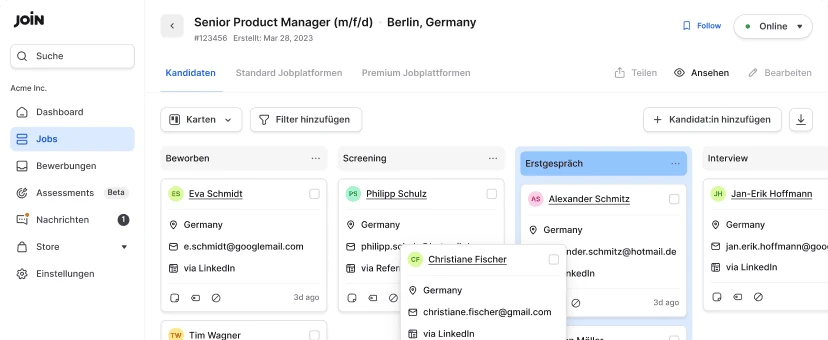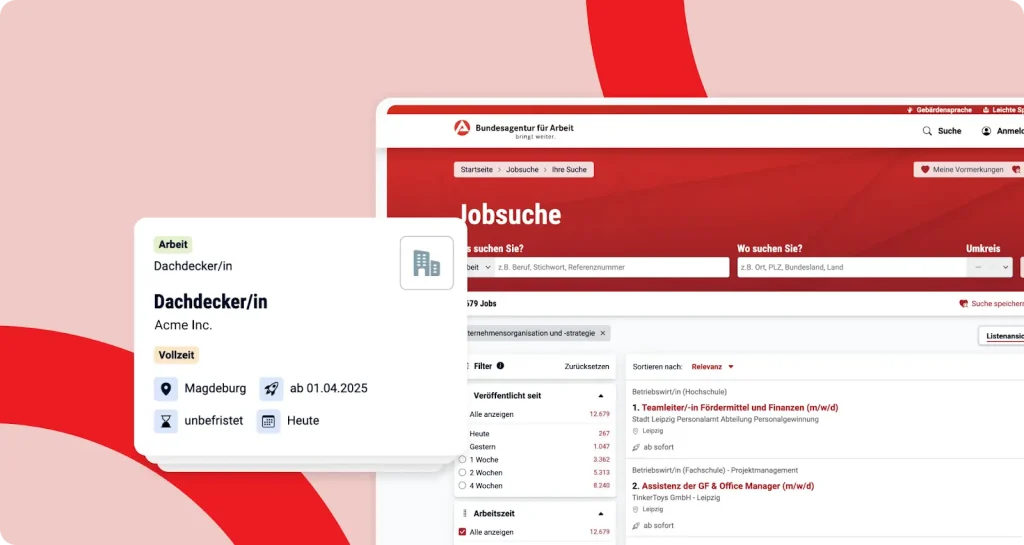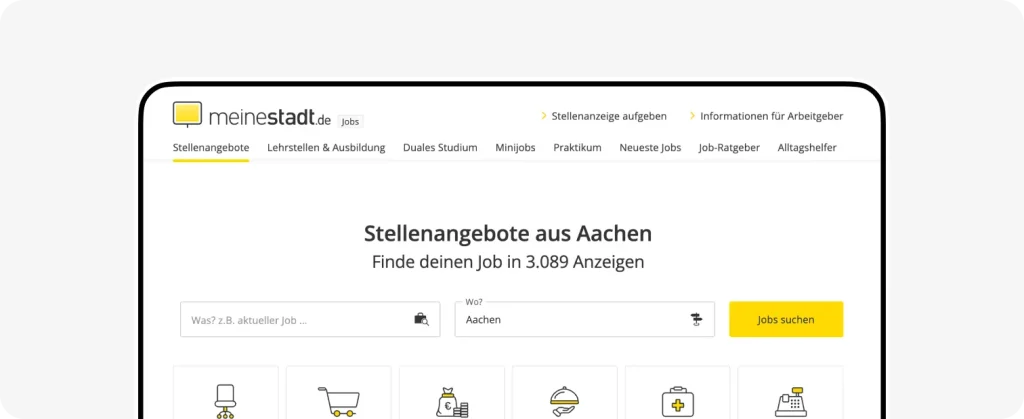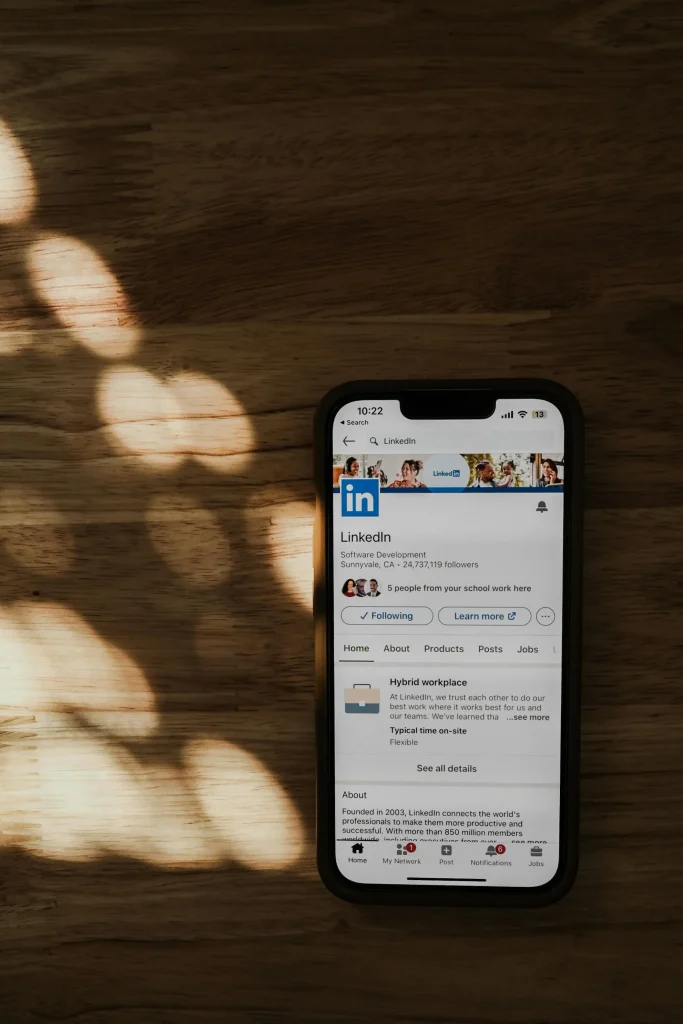Best interview questions for your hiring process
Chef Interview questions
Chefs are talented food experts. They will have the know-how and skills needed to turn fresh ingredients into delicious meals for your customers to enjoy. Most Chefs will have a cuisine or food type which they will specialise in.
These are the Chef skills your candidate should have:
• A degree or similar qualification in food preparation safety.
• Proven experience preparing and cooking dishes.
• High level of food allergen understanding and awareness.
• Excellent team-working ability.
• Proven experience with a range of kitchen equipment and tools.
Interviewing a Chef
A Chef is a talented food preparation expert, able to turn a range of ingredients into delicious dishes. They’ll also be able to present and design their dishes appropriately, to ensure the customer has the best possible experience.
Due to the nature of the role, it’s important that you ensure your Chef has the necessary food safety skills. Not sure how to do it? We’ve put together this list of questions to help you decide whether the candidate is up to the job or not.
It is worth noting, these questions are designed for use early in the interview process. This helps you to establish an initial view of your future Chef. Later in the process, more business-specific and technical interview questions for Chefs may be needed.
How to open the job interview
Jumping straight in with the tough questions may seem like the best way to quickly establish a fit with your potential Chef. However, this isn’t the case. Often, this can make your candidate too nervous to properly think through their answers and will mean you can’t properly assess their personality fit.
Instead, consider starting with a couple of light opening questions that get the conversation flowing and put your candidate at ease. This will have huge benefits for the remainder of your interview.
Best interview questions for your hiring process
See our Chef job description hereFor the interview
A positive opener to start
What led you to become a Chef?
What is a dish you’re particularly proud of creating?
Behavioral Questions
Can you give an example of a Chef or restaurant that really inspires your work?
Describe a time you’ve had to cook a dish that you weren’t familiar with or didn’t know how to make. How did you overcome this?
If your menu is constantly changing, or you bring new items to the table often, this is an especially important Chef interview question. Knowing your candidate has dealt with this before will be a relief. They should be able to mention using the recipe to guide their process, as well as taking pointers or advice from the Head or Sous Chef.
Describe a time when a dish didn’t turn out the way you expected. What did you do, and how did you learn from this experience?
Not every dish will turn out perfectly every time, so knowing your candidate has dealt with this happening to them in the past is essential. You’re looking for a candidate who was able to minimise the damage where possible, or analyse their actions and learn from them.
Describe a dish you found challenging to prepare, how did you tackle this and what did you learn?
Stepping outside of their comfort zone is a great way for candidates to grow. Here, you’ll get an idea of a time a candidate has done this and how they used the experience to grow their skills and talent.
Soft Skills
When working as part of a team and a colleague mentions they aren’t happy with the way you have prepared something, what would your next steps be?
Feedback is an excellent way for a Chef to grow their talents. Here, you’re looking for a candidate who uses their initiative and turns this feedback into actionable points. They may also use their communication skills to ask for further elaboration on said feedback.
If a colleague was preparing ingredients for a dish in a way you didn’t agree with, what would your next steps be?
This answer highlights a candidate’s team-working ability and communication skills. Here, they should be able to professionally approach the colleague in a timely manner (to avoid disruption to workflow). They should also be able to back up their advice with expert knowledge.
What skills do you have that make you an ideal candidate for a Chef role?
Here, you’ll get insight into a candidate’s most confident skills and what areas they excel in. This is a great interview question for Chefs, as it may introduce you to skills you hadn’t previously considered.
If given a recipe to make that you weren’t particularly confident with, what would your next steps be?
Here, a candidate should mention closely reading the recipe through and taking extra caution with ingredients. They may also use their communication skills to work with their team members for advice on the dish.
When helping a colleague with a recipe, how do you ensure that they fully understand the assignment?
This is another communication-based question. Your candidate should mention checking in with the employee throughout the recipe, in order to avoid mistakes being made along the way.
Hard Skills
Have you had any formal kitchen equipment or tools training? If so, what?
While this isn’t the case for every Chef, knowing whether your chef is formally trained to use particular equipment or tools can be a boost when hiring. It will also give you an idea of whether they can bring new skills to your team.
What food types and cuisines do you have the most experience with?
This helps you to assess a candidate’s compatibility with your business. In some cases, experience with certain cuisine types will be needed.
What formal health and safety training have you taken?
Chefs need to be experts in food preparation and kitchen safety. Therefore, this question is an essential part of a Chef interview.
How much experience do you have substituting different food types to help cater for dietary requirements and allergies?
This will be especially important for some businesses, so knowing the candidate’s experience level here is extremely useful.
Do you have any management experience?
Occasionally, Chefs will help to guide Line Cooks or similar roles, so knowing whether a candidate has managed anyone before can help to aid this decision.
Operational / Situational Questions
Imagine you are preparing a dish and notice that a certain ingredient or spice is used up, what would your next step be?
Here, this information should be passed on to the customer as soon as possible and a list of substitutes should be made. The customer can then either ask for a substitute or ask for a different dish. A substitute should not be made without consulting the customer.
Imagine you are offered the position of Chef in our business, what would your first steps be in the company?
Familiarising themselves with the menu, learning the layout of the kitchen, and introductions with the team and any direct management or reports should be high on the priority list.
Imagine you are given the opportunity to add a seasonal dish to our menu, what would you choose and why? (Here, a particular season can be selected.)
This question will give you an understanding of how well a candidate has researched your business, as they should be able to choose a dish that fits your menu well. It will also give you an insight into their creativity and confidence.
Imagine you received a negative review from a diner at the restaurant. What would you do?
This will undoubtedly happen from time to time while working in a kitchen role. The candidate should be able to take the feedback onboard without letting it impact their motivation. They should make some actionable points from the feedback and try to keep these in mind when next creating this dish.

Start hiring and prepare your interview
All platforms are available for you to promote your job through JOIN.
Create job ad for free


A great quality for your future hire to have is a passion for their work. This answer will let you know whether this is something they hold and hint at whether they are up-to-date and interested in their industry.